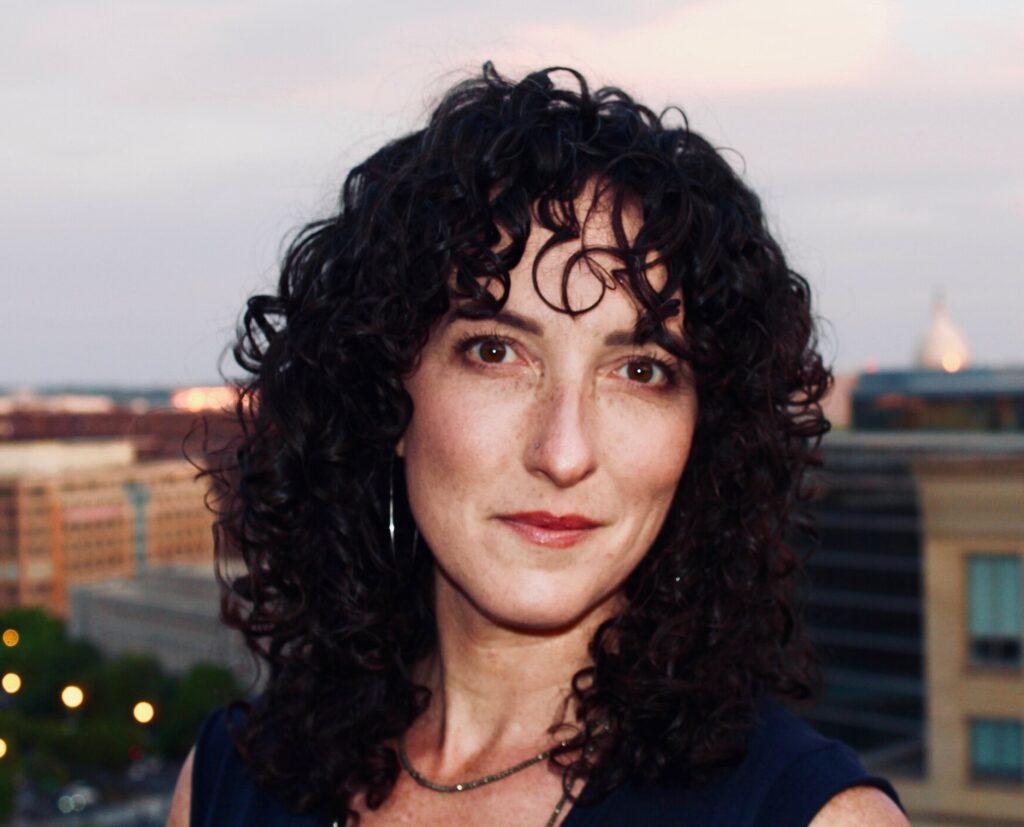Watt Winner Catherine Wigginton: “I’ve Never Stopped Thinking about Salaria Kea.”
In 1999, Catherine Wigginton Greene won ALBA’s Watt Award with an essay on Salaria Kea, the only African American nurse to serve in the Spanish Civil War. Twenty-four years later, Wigginton is a successful novelist, filmmaker, and educational consultant whose work still focuses on the themes that drew her to Kea as an undergraduate at Coe College: racial justice, gender equity, and anti-fascism.
Catherine Wiggington Greene’s filmography includes the feature documentary I’m Not Racist… Am I? (2014) and Look Deeper: Race, a digital, interactive course on race and racism. She also works with Point Made Learning, a consulting firm focused on diversity, equity, and inclusion education, and leads interactive workshops on identity. Her first novel, Rebecca, Not Becky, co-written with Christine Platt, is due out this December.
Wigginton, who grew up in Denver, Colorado, holds a BA in History and Spanish and an MS in Journalism, and is working on her doctorate in Education. She lives in Washington, D.C. with her husband and three daughters. I spoke with her in May.
What drew you to the Spanish Civil War?
I always had an affinity for languages. I had lived in Italy with my family when I was a kid. I think that early exposure to a romance language made Spanish easy for me. But I don’t remember all that much about Italy—I wanted my own travel story. I loved history in college, took a course on Spanish film, and had the opportunity to do a study abroad program in Sevilla. I was fascinated by the Spanish Civil War and the idea that Americans who were not in the military would travel to Europe to fight. It sounded so drastic. Would I ever be that brave? I always felt committed to social justice and race, but the volunteers… that was just next level. Next, I read Peter Carroll’s book, and learned about Salaria Kea. I saw what Langston Hughes wrote about her. And I just wanted to tell her story. So I wrote my BA thesis in history about Salaria. I did research at Brandeis, where I found information about Salaria in Fredericka Martin’s files. It felt very meaningful. And even though it was a long time ago, I have never forgotten about her. I’ve never really let this go. There are so many components to the story, the love story of Salaria and John O’ Reilly. In fact, I have talked about it with my literary agent, but she thinks I should not write about Salaria because I’m white. Still, I’ve been thinking about what I might do with all this.
How did you become a filmmaker?
After I got my BA, I wanted to be a journalist, but I did not know how to begin. My partner and I (he worked on political campaigns) were pretty dejected after the Kerry election. I decided I should follow through on my goal to get a graduate degree in journalism and got into Columbia University. After I graduated, I was hustling; walking dogs, copyediting, anything to pay the rent. Then I saw a posting for a job to write a blog for a brand-new filmmaking company that was doing a film on transracial adoption. I had good connections to the theme, because of work my mother had done and because my husband is Black, and I was serving as stepmother to his daughter. They wanted me to write blog posts about transracial adoption that would go viral—the idea of blogs going viral was still new at that time. Eventually I moved into a production role and the woman who owns the company became my mentor. I’ve been with them ever since.
Your filmmaking and educational work seem closely connected.
All our films have an educational element. A teacher at a school in NYC had received a prestigious Kellogg grant to do a film about race but had no idea how to go about that. We connected with him and that’s how we made I’m Not Racist… Am I?, which we continue to screen in educational settings around the US. The film shows how over the course of one school year, a diverse group of remarkable teens and their families plunge into a yearlong journey to get at the heart of racism. Through some tense and painful moments, we see how these difficult conversations begin to affect their relationships, and ultimately challenge them to look deep within themselves. By the end of their time together, we see these courageous young people develop stronger bonds, a greater resolve, and a bigger, more significant definition of racism than any of us ever imagined.
What new projects are on your workbench?
I’m back in grad school, at a Doctor of Education program at George Washington University, where I’m doing research that draws on my years of observing how audiences respond to I’m not Racist… Am I? My project involves “reimagining curriculum for the humanities,” specifically looking at affect and emotion and pedagogy of discomfort, critical race theory, and the field of “difficult knowledge.” This field holds that learning about some topics—for instance, civil war, communism, genocide, racism—can be a deeply emotional experience. We cannot say what outcomes are because the content is destabilizing. I’ve seen this first-hand with our film on racism. I was excited to see that there is actual terminology and theory that helps to explain and study what is going on with people experientially when they learn things that make them feel implicated or makes them feel shame or anger.
Gina Herrmann teaches at the University of Oregon and serves on ALBA’s Board.













